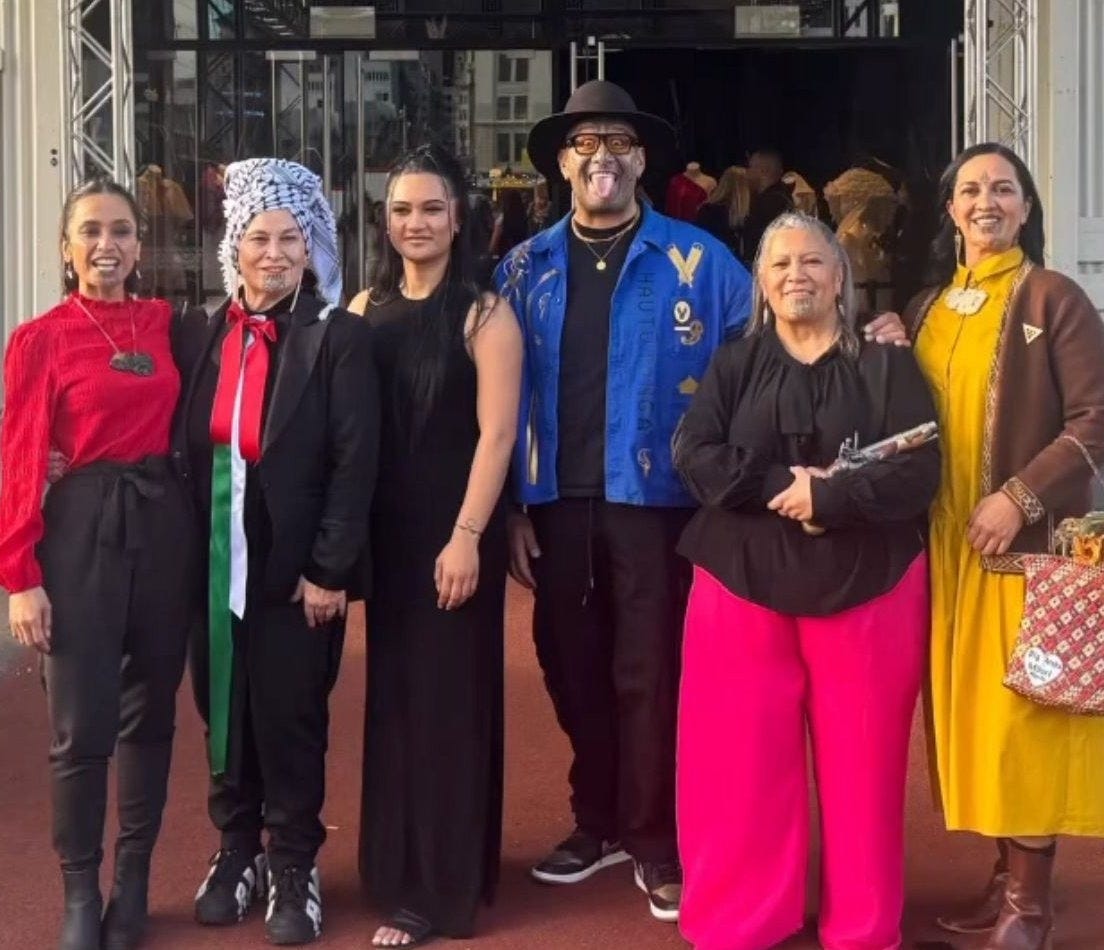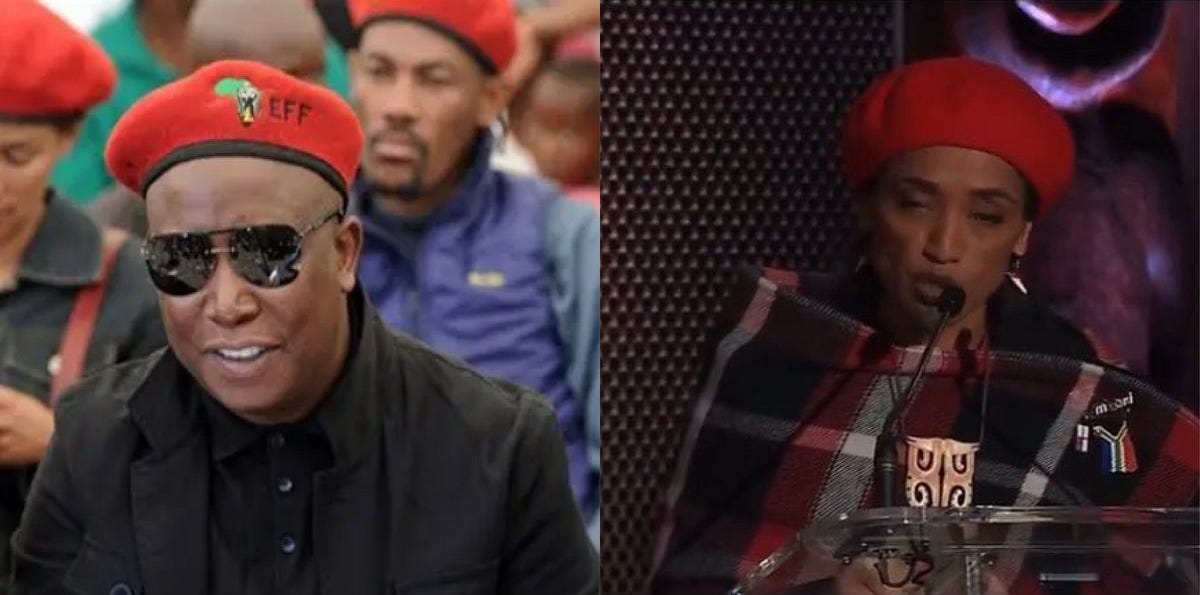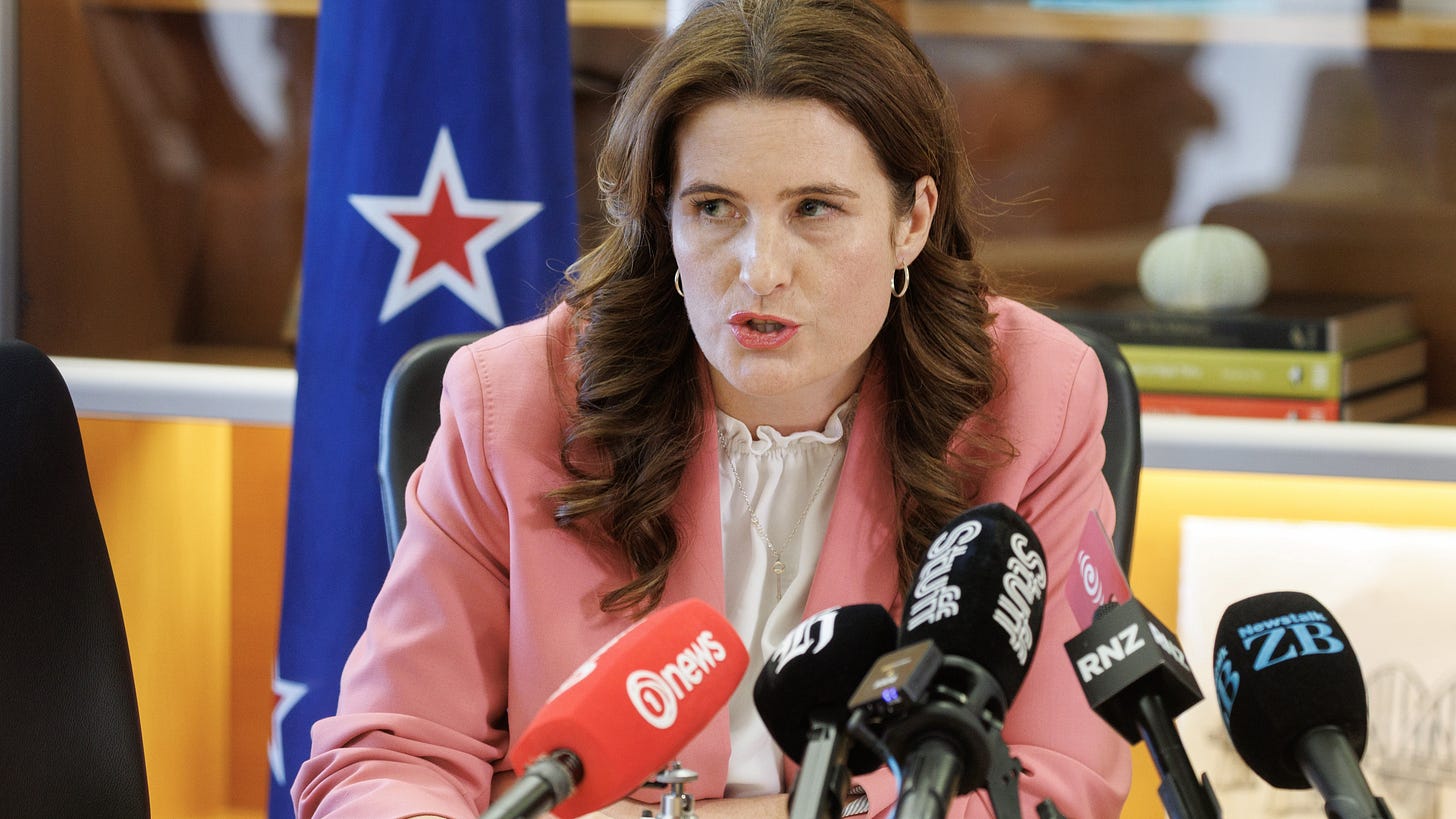Reserve Bank drama continues: resignations, cover-ups, and a crisis of credibility
The chaos at the Reserve Bank has gone from embarrassing to farcical and, on one level, I have my popcorn bucket and I’m living for it. First the Ombudsman ruled forcing the Bank to come clean that Adrian Orr didn’t just “decide to resign” in March in a “personal decision”. He had already temporarily stepped aside on 27 February after the Board sent him a letter questioning his conduct, his relationship with Treasury and Finance Minister Nicola Willis, and whether he could do his job on reduced funding. That letter was later withdrawn as part of a deal to protect the egomaniac from embarrassment, but he resigned anyway on 5 March. Now, thanks to the Ombudsman, we know it was about much more than a disagreement over budgets. It was about lost tempers, damaged relationships, and a central bank in open dysfunction.

Adrian Orr
The fallout has now claimed Quigley himself. Thanks to my own disorganisation and the fact I am writing this at 10.24pm on Friday night, I managed to catch the news that he has resigned as Chair “with immediate effect”.
The optics are grim: a Governor who blew up at Treasury officials, a Chair who tried to bury the evidence, and an institution that only told the truth when it was forced to. The Reserve Bank is meant to be boring. It’s supposed to exude calm, credibility, and competence. Instead, it’s behaving like a political soap opera.
🇦🇺 Australia calls out 🇮🇷 Iran while NZ dances on pinhead
Australia has expelled Iran’s ambassador (the first such expulsion since World War II) after its intelligence agency, ASIO, traced two antisemitic attacks back to Iran’s Islamic Revolutionary Guard Corps (IRGC). One was at a Melbourne synagogue, the other at a kosher restaurant in Sydney. Given that Albo’s government has been loudly backing international moves for Palestinian statehood (never mind that terrorists are in charge), the boldness of this response is somewhat surprising. But Australia says it has “very, very high confidence” in the IRGC’s involvement and are moving to legislate the IRGC as a terrorist organisation.
Christopher Luxon has issued strong condemnations of Iran’s involvement saying it was “utterly unacceptable and abominable”. And our officials also held a “pretty direct, pretty straightforward” conversation with Iran’s ambassador in New Zealand, Reza Nazar Ahari.
But, unlike Australia, Luxon has urged caution. The PM argues the decision to expel an ambassador or designate the IRGC as a terrorist entity is “quite complicated,” and involves legislative and security considerations. He has asked for official advice and stressed the importance of keeping diplomatic channels open.
Time to get rid of demographic agencies?
Public Service Commissioner Sir Brian Roche has made it crystal clear “all options are on the table” when it comes to the future of the Ministries for Women, Pacific Peoples, and Disabled People. He insists nothing’s ruled in or out, but emphatically states that Te Puni Kōkiri (Ministry of Māori Development) is off the chopping block. The goal? Boost efficiency, reduce fragmentation, and let agencies focus on their core business.
ACT has long campaigned to abolish "demographic ministries" with David Seymour expressing that government services should serve people as citizens, not by identity. He also found himself in hot water when he said aloud that he would like to figuratively blow the departments up.
Now, with Roche eyeing structural reform, the ACT dream appears to be at least partially progressing. Expect handwringing and outrage with the usual chorus about “unconscious bias,” “lived experience,” and “co-creating inclusive ecosystems that amplify belonging and equitable outcomes” as though our reality is being erased by streamlining. After all, what is more “intersectional” than having public services that treat the whole person rather than slithers of their identity.
These demographic agencies are too small to wield real power and often so ideologically incoherent that they can't even define their own scope of influence and responsibility. Case in point: the Ministry for Women include men in their definition of women. Why are our taxes paying for this confusion? Consolidating these ministries isn’t about identity politics as much as it is about government efficiencies and the fact that we are in an enormous amount debt necessitating the less productive spend gets the heave ho.
How much taxpayers paid for the Cowardly Covid Quartet’s lawyers
$70,574 of our taxes paid for legal representation for Dame Jacinda Ardern, Chris Hipkins, Grant Robertson, and Dr Ayesha Verrall so that they could engineer an escape clause and avoid publicly fronting for the Covid Inquiry. They spat in our face and we paid for the privilege.
Leaders who orchestrated radical restrictions, shuttered businesses, and destroyed livelihoods are now quietly shielded from accountability thanks to lawyers we paid for. And because the Cabinet Manual mandates indemnity for ex-ministers, it’s all “by the book.”
The proud architects of the pandemic response enjoy cushioned legal support and lucrative book deals, while ordinary Kiwis are left to pick up the psychic and economic fallout.
The radicalisation of Te Pāti Māori will not be televised
If you rely on the mainstream press, you’d think Te Pāti Māori are just cheeky disruptors, but their radicalisation is long overdue for scrutiny.

Co-leader Rawiri Waititi openly praises Burkina Faso’s military dictator Ibrahim Traoré, a coup leader who banned homosexuality, expelled journalists, and slaughtered his own people. Candidate Oriini Kaipara has been cosplaying as South Africa’s Julius Malema, infamous for chanting “kill the boers.” Young MP Hana-Rāwhiti Maipi Clarke styles herself on Marxist revolutionary Che Guevara. Mariameno Kapa-Kingi has openly voiced hatred of white New Zealanders, declaring non-Māori “lucky” to live here, and even turned up at Fashion Week with an ornate pistol. Her son Eru Kapa-Kingi has similarly used guns in the imagery for Toitū Te Tiriti, the protest arm of Te Pāti Māori that he fronts. And co-leader Debbie Ngarewa-Packer dresses like a member of Hamas if they stumbled through a vintage clothes store.

Party President John Tamihere has doxxed opponents, while the party’s social media has encouraged harassment of billboard company staff. Tamihere’s daughter, Kiri Tamihere-Waititi, also the wife of Rawiri Waititi, has posted videos online calling for the overthrow of the government. She is a key figure in the party and the registered director of Toitū Te Tiriti.
And yet the media barely blinks. Journalists hunt endlessly for “dog whistles” from the centre-right but ignore blatant radicalisation on the Māori nationalist left. The very security agencies eager to warn about far-right extremism or lone-wolf jihadis go mute when radicalisation comes in a Māori nationalist flavour.
Te Pāti Māori has become a party of ethno-nationalism; glorifying coups, stoking division, intimidating opponents, and eroding democratic norms. The radicalisation is real, happening in plain sight. But it won’t be televised, because those with the cameras don’t want you to see it.
Government announces supermarket solution
The Coalition rolled out its plan this week to tackle the supermarket duopoly with Nicola Willis explaining how they are “fast-tracking competition.” This means a new “express lane” for consents and zoning, MultiProof designs for cookie-cutter supermarkets, and tweaks to the Overseas Investment Act. This, Willis claims, will shave years off the process of getting new entrants into the market.

Naturally, economist Eric Crampton is applauding the Government’s approach as a lot of it does come from the New Zealand Initiative’s playbook: remove the barriers, let the market work, and see if new players can actually crack the system. Heavy-handed breakups, Crampton warns, are risky and costly.
But New Zealanders aren’t struggling at the checkout because of zoning laws alone. We’re squeezed because two companies dominate, and fast-tracking Aldi or Lidl into a few suburbs in five years’ time won’t deliver immediate relief to families now which is the Government’s major challenge.
Labour are calling the plan “painfully weak” despite achieving precisely nothing in this space while they were in charge. The Greens are at least honest about their economic illiteracy saying they want to break up the duopoly and tax the living daylights out of the supermarkets... wonder who they will pass those costs on to. And Te Pāti Māori’s answer is an “iwi-led, kaupapa Māori, Tiriti-centric” grocery system. Good luck with that.
That’s the landscape of this terribly complex struggle in a nutshell. The Coalition is “doing something,” Labour is floundering, the Greens are defaulting to tax-and-punish, and Te Pāti Māori are trying to “decolonise” shopping trolleys. Meanwhile, Kiwi shoppers are still paying through the nose.
Minister Hoggard hears calls for action against chained dogs
Animal activists have reason to celebrate. They’ve been decrying for years that too many poor pups have spent their lives tethered to a rusty post, shivering in their own filth or gnawing at their chains, without intervention. The current law is practically useless. The Animal Welfare Act only demands food, water, and shelter and thanks to that minimalist standard, many dogs live chained in misery and nothing actionable could ever be done.
Finally, Associate Agriculture (Animal Welfare) Minister Andrew Hoggard has stepped in to give inspectors the power to take action. Starting 25 September, anyone tying up a dog in a way that causes harm can be fined $300 for mild harm, $500 for moderate, and prosecution is on the table too. It’s a clear win for animal welfare and common decency.
In short - other stuff that happened:
- Former Highlanders flanker and Tasman Mako captain Shane Christie has died aged 39. Christie battled concussion symptoms and campaigned for better player safety and research, even volunteering to donate his brain to science.
- 🇦🇺 Two Victorian detectives were shot dead and another officer injured in Porepunkah when a self-styled “sovereign citizen” opened fire during a warrant raid, sparking a massive bushland manhunt.
- The government’s new Business Investor Visa offers residency for a $1m investment (3-year wait) or $2m plus business operation (fast-track in 1 year).
- Speculation is rife that foreign property buying rules could soon be relaxed to allow high‑net‑worth foreigners to buy luxury homes, but the number being floated for property value minimum of $5m is pretty darn high.
- NZME’s new editorial board has been announced consisting of lawyer Philip Crump, former NZ Herald Head of Premium Miriyana Alexander, political commentator and former Labour candidate Josie Pagani and former National staffer, and former chief sub-editor at The Dominion and Sunday Star Times, Brent Webling.
- Alec Wilson dies at 92. The former Māori All Black and Rotorua leader is remembered for driving Ngāti Whakaue land development and championing education.
- Customs seized 927,000 “Double Happiness” smokes hidden in parcels from China, dodging $1.4m in taxes; a 43-year-old has been arrested and charged.
- The Loafers Lodge five week murder trial has opened. A 50-year-old man denies murdering five in the 2023 Wellington hostel blaze.
- The retail sector is rebounding with NZ retail sales rising 0.5% in the June quarter, beating forecasts, with growth in electronics, supermarkets, and pharmacies.
- Four Māori health groups are in the High Court arguing the Māori Health Authority’s disestablishment breaches Treaty principles, a first-of-its-kind bid for a declaration of inconsistency; the Crown says such constitutional shifts belong to Parliament, not judges.
- Luxon has admitted giving OCR “reckons” saying he shares views with the Reserve Bank governor before rate calls but insists he respects the Bank’s independence. Hmmm.
- New Zealand’s trade deal with the UAE is now in effect. It was the fastest ever trade deal with 98.5% of exports now duty free.
- Minister Nicole McKee has introduced alcohol reforms streamlining licensing, recognising digital IDs, requiring more low-alcohol options, fast-tracking approvals for big televised events, and curbing deliveries to intoxicated people. She says it is cutting red tape while keeping key safeguards.
Stuff I found interesting this week:
This speech from Housing Minister Chris Bishop at the Centre for Independent Studies forum in Sydney is fantastic. If you watch one thing this week make it this. He takes a bipartisan approach to solving the housing crisis. Note: I haven’t watched the whole livestream, just the minister’s bit from 16:07.
This speech from Housing Minister Chris Bishop at the Centre for Independent Studies forum in Sydney is fantastic. If you watch one thing this week make it this. He takes a bipartisan approach to solving the housing crisis. Note: I haven’t watched the whole livestream, just the minister’s bit from 16:07.
This piece by John Raine and Bryan Leyland argues New Zealand’s Net Zero plan is a $530b fantasy for just 0.09% of global emissions. They say instead, we need reliable baseload power (geothermal, hydro, gas, and eventually nuclear) over green wishful thinking. It is an interesting read and if the rumours are true that a party is making an announcement on this kinda thing next week, it is prescient.
Ani O'Brien comes from a digital marketing background, she has been heavily involved in women's rights advocacy and is a founding council member of the Free Speech Union. This article was originally published on Ani's Substack Site and is published here with kind permission.


5 comments:
Does Brian Roche think that being Maori is a greater disadvantage than being disabled ?
Why is he protecting TPK ?
Did that sort of distorted thinking gain him a knighthood ?
We should not take Te Partly Maori too seriously -they should be laughed out of court. With their cowboy hats, scribbled faces and dress beyond casual into the bizarre are they serious? We do not see circus clowns these days because their remnants have gone into Parliament.
Wow. There will be no change in editorial policy at nzh. As Roger daltrey put it: look at the new boss, same as the old boss.
That new NZME editorial board just might work. It looks neither too far left nor too far right. Josie is sometimes centre, if a bit more to the left. It could be enough to end up neutral - i.e. tell both sides of the story and let the reader decide. If they can do that, an over 5 year long, dyed in the wool, non-subscriber like me might be tempted to reconsider. I’m in the wait and see camp for now. Thanks go to Ani for the great weekly round up.
Anon at 8:18pm:
Crump and his board have a massive task and they will have to come to grips with this:
charting a fresh course toward that elusive thing once called balanced reporting is a noble mission, certainly.
But let’s not kid ourselves. This is like being handed the wheel of a ship that’s already steaming full-speed into irrelevance and being told: “Turn her around. Quietly, if you can.”
Crump is not a journalist, which may be both his strength and his curse. As a mediator, he knows about keeping warring parties at the table.
But here the factions are not sitting politely. They’re down in the engine room, shovelling coal into a furnace labelled activism. And they’re not interested in new captains, new charts, or course corrections. In their eyes, the direction is morally pure, and anyone questioning it is siding with the iceberg.
The board is not short on experience. Miriyana Alexander, once Head of Premium at the Herald, knows the machinery. Josie Pagani brings Labour connections and a sharp political nose. Brent Webling has blue-team pedigree and newsroom credentials from another era. On paper, this is a sensible spread of skills and affiliations. In practice, it risks becoming a kind of Noah’s Ark of good intentions — two of everything, but nowhere to dock.
Because the problem is not the absence of experience; it is the newsroom culture itself. For years, reporters have been encouraged to see themselves less as witnesses and more as campaigners. The line between reporting and activism blurred until it disappeared. To suggest balance now is to commit a kind of heresy, the equivalent of saying the Earth might be round after all.
And here’s where the crystal ball gets interesting. The first time the board nudges against the prevailing winds, someone will leak the minutes. RNZ will dutifully present the story as a fight for “editorial independence.” Stuff will call it “interference.” The journalists’ union will issue an emergency press release about creeping managerialism. By afternoon, union spokesman Michael Wood will be on Radio New Zealand demanding select committee hearings into threats against the Fourth Estate.
In other words, before the board even decides where the wheel should turn, the mutiny will already be public.
This is the enormity of Crump’s task. Balance cannot be bolted on to a culture that doesn’t prize it. It has to be rewoven into the newsroom’s DNA, word by word, headline by headline. It requires the courage to say: “This is news, and this is opinion. They are not the same thing.” It demands the stamina to withstand a thousand tiny rebellions from within. And it takes the conviction to keep pushing, long after the first bruising headline about “meddling lawyers” fades.
Does the Herald have that appetite? It should. Because audiences are not deserting in droves because they dislike news; they’re leaving because they no longer trust the product. They see too much slant, too much sermonising, too much activism dressed up as objectivity. Readers don’t want cheerleaders. They want reporters.
The board, if it is serious, has two options: hold the newsroom publicly accountable for balance, or play string quartet on the deck while the lifeboats fill. Anything in between will look like cosmetic reform — brave memos no one reads, and workshops that change nothing.
Through the glass darkly, you can just about see the choice. A ship steaming on, convinced of its righteousness, as the audience bails out. Or a painful, grinding correction back toward relevance, led by a board willing to endure leaks, tantrums, and the inevitable cries of “censorship!” from the very people who once called balance their job description.
Philip Crump has the compass. The question is whether anyone below deck will listen when he calls for a new course.
Post a Comment
Thank you for joining the discussion. Breaking Views welcomes respectful contributions that enrich the debate. Please ensure your comments are not defamatory, derogatory or disruptive. We appreciate your cooperation.